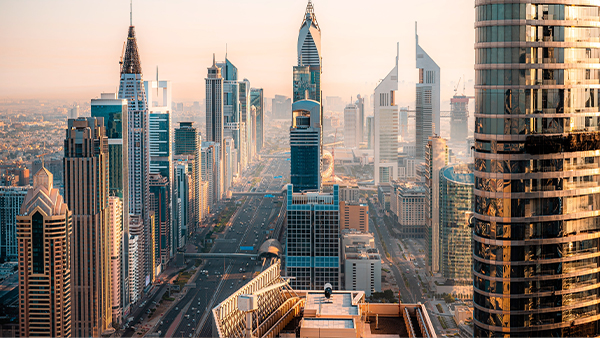Since the COVID recovery, Dubai remains a key global hub for real estate investment, offering high rental yields, capital appreciation, and long-term potential.
However, expats entering the real estate market in Dubai often face legal complexities that can lead to major setbacks, especially for first-time investors.
Whether considering a ready-to-move apartment for sale or long-term capital investment with off-plan units, avoiding these legal mistakes is critical and helps investors prevent losses while maximizing their returns.
1. Misunderstanding Freehold and Leasehold Zones
Foreign investors often assume that full ownership is possible across all areas in Dubai. In reality, ownership laws are specific, granting ownership accordingly.
Freehold zones
Freehold zones permit foreign nationals to fully own the property as well as the land. This allows investors to readily modify developments, structure, and interior designs without prior approvals from landlords.
Leasehold zones
Leasehold zones allow ownership of the unit, but these rights do not extend to the land. Moreover, such units are limited by time, with most contracts extending leases to 99 years.
Before finalizing any deal, investors are advised to explore the specifics of Freehold vs Leasehold ownership in Dubai.
While one might seem a better option, both ownerships hold their importance and serve investors differently based on their preferences and goals.
2. Failure to Verify Developer Credentials
Quick, direct purchases from developers are common, especially when investors are inclined towards ready-to-move apartments for sale.
However, certain developers work with sub-optimal procedures, creating delays, confusion, and an inefficient purchasing process, often leaving a negative impact on investors, especially when buying an apartment in the UAE for the first time.
Investors should verify that developers are RERA-registered, with a history of successful handovers and legal compliance.
Ignoring this step can result in construction delays or disputes over promised features and timelines, delaying occupation and rental income.
Developers with a consistent track record, legal transparency, and timely delivery make the investment process far more reliable, easy, and efficient.
Reputed names such as Danube Properties, known for delivering on promises and offering structured payment solutions like their flagship 1% Payment Plan, provide an added layer of financial and legal confidence for buyers.
This approach helps reduce upfront financial pressure while maintaining full legal protection for investors buying property in Dubai.
3. Overlooking the Mandatory Registration with DLD
Property transactions must be registered with the Dubai Land Department (DLD) to obtain legal ownership. Failure to do so renders ownership claims invalid.
The title registration process also involves a 4% transfer fee, which should be included in the overall investment calculation.
4. Ignoring Thorough Documentation and Legal Protection
Verbal agreements and conversatory promises carry no legal standing in legal proceedings.
Any agreed terms, including payment plans, handover dates, service charges, and furnishing, must be included in the Sale and Purchase Agreement (SPA).
The legal property purchase process in Dubai includes several simple terms and steps, and having clarity on the process helps investors safeguard their investments and maximize the benefits of buying an apartment in the UAE.
5. Committing to Mortgages Without Exploring Payment Plans
When investors buy an apartment in the UAE using financing options, most are overwhelmed with mortgage options, failing to thoroughly evaluate pressing terms such as interest rates, early settlement fees, and loan eligibility conditions.
Moreover, mortgage approval also depends on income source, residency status, and creditworthiness. And entering a sales agreement before mortgage approval may lead to legal and financial complications.
While financing your ready-to-move apartments for sale or gradually investing in off-plan units, developers now offer payment plans, making property investments in Dubai more accessible and affordable.
Our 1% Payment Plan offers residents and foreign buyers the opportunity to buy a property in Dubai for as little as a 20% down payment and split the remaining property value into 1% monthly installments.
6. Ignoring Additional Fees and Overhead Charges
Most developers often market the base property price to attract investors and initiate the purchase. However, the complete property purchase process includes additional costs that most foreign investors are unaware of.
From maintenance tax to registration fee, these additional charges are small percentages of the property value. Failure to calculate these can affect budgeting and surprise investors in the latter stages of buying an apartment in the UAE.
7. Missing Out on UAE Residency
Property investments not only offer robust financial security in the UAE but also qualify investors for residency programs.
Investors purchasing properties valued at AED 750,000 or more may be eligible for a renewable Investor Visa valid for 2 years, while purchases exceeding AED 2 million may lead to a renewable 10-year Golden Visa.
However, eligibility depends on legal compliance, registration, and proper documentation.
Conclusion
Buying a property in Dubai requires more than selecting a desirable apartment or villa.
Legal due diligence is essential at every stage, from choosing the property to registering ownership and understanding obligations.
With an increasing interest in ready-to-move apartments for sale in the UAE, investors are always advised to explore various options and proceed with a legally sound approach to their investment that ensures long-term stability and potential eligibility for UAE residency.
Partnering with verified developers and prioritizing documentation significantly reduces risk and supports a successful investment strategy.
For those seeking ease of payment, legal clarity, and reliable handover timelines, choosing a developer like Danube Properties with structured plans such as the 1% scheme offers both convenience and compliance, which is well-appreciated in the fast-paced Dubai real estate market.








